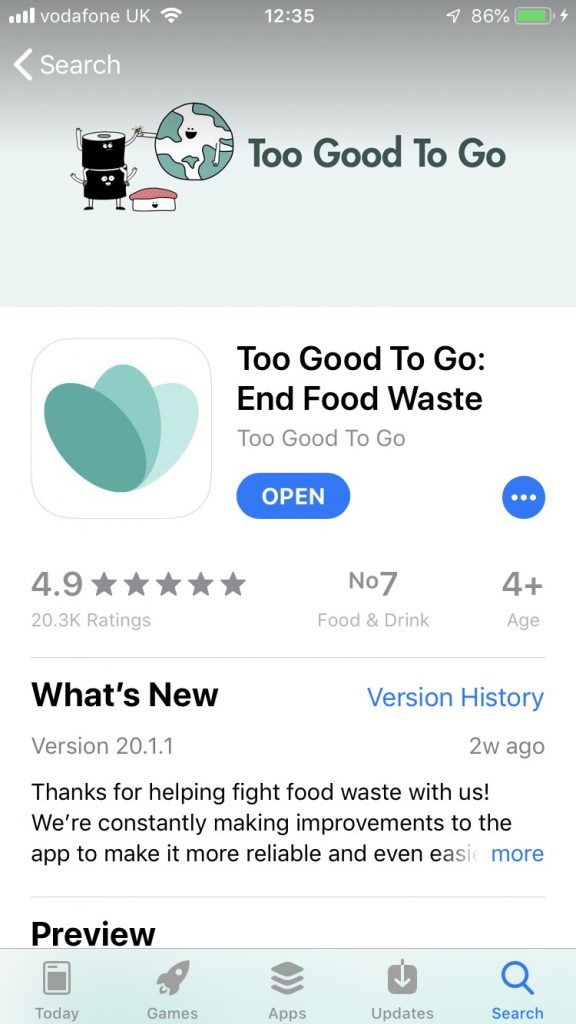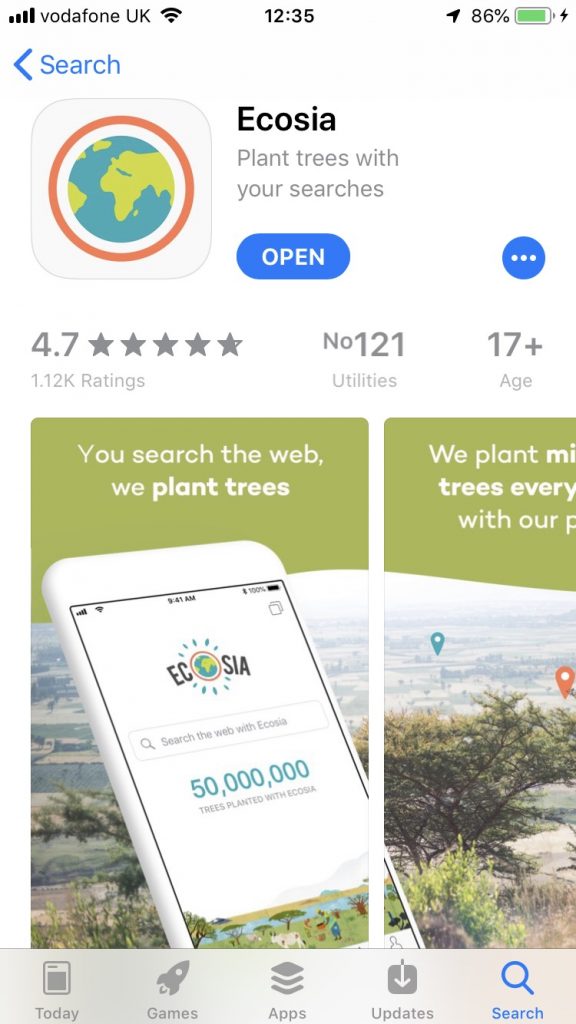10 Easy Ways for Students to Help the Environment
13 Chwefror 2020
Being environmentally aware has recently become a trend, and one we should be thankful for considering the planet’s current state. From veganism to sustainable makeup, our generation are making conscious decisions on behalf of a healthier planet. However, there are common misconceptions that it costs more money to be environmentally friendly, stopping lots of people from doing their bit. Yet this conception is wrong, there are many cheap ways to help the environment, here is an easy guide:
1. Recycle
An obvious but an essential one. It can be very tempting to shove your rubbish in the black bin liner as opposed to taking off the recyclable packaging, or even just figuring out if it is indeed recyclable. In first year, the accommodation holds recycling competitions, and this introduces a relatively fun aspect (I mean how fun can recycling be made?) and some friendly rivalry. In second and third year the council fine you for having food waste in any bin other than the food waste bin, they also only take your black bin liners if they fit in the wheelie bin with its lid closed. Otherwise they refuse to collect it and you’re stuck with loads of rubbish which back logs (trust me this results in rats in the long run. Something you REALLY want to avoid). The council collect as many recycling bags as you put out which is an incentive to recycle, who wants loads of rubbish cluttering up their garden or house? The easiest way to do this is have 2 bins and the food bin and just separate it as you go throughout the week.
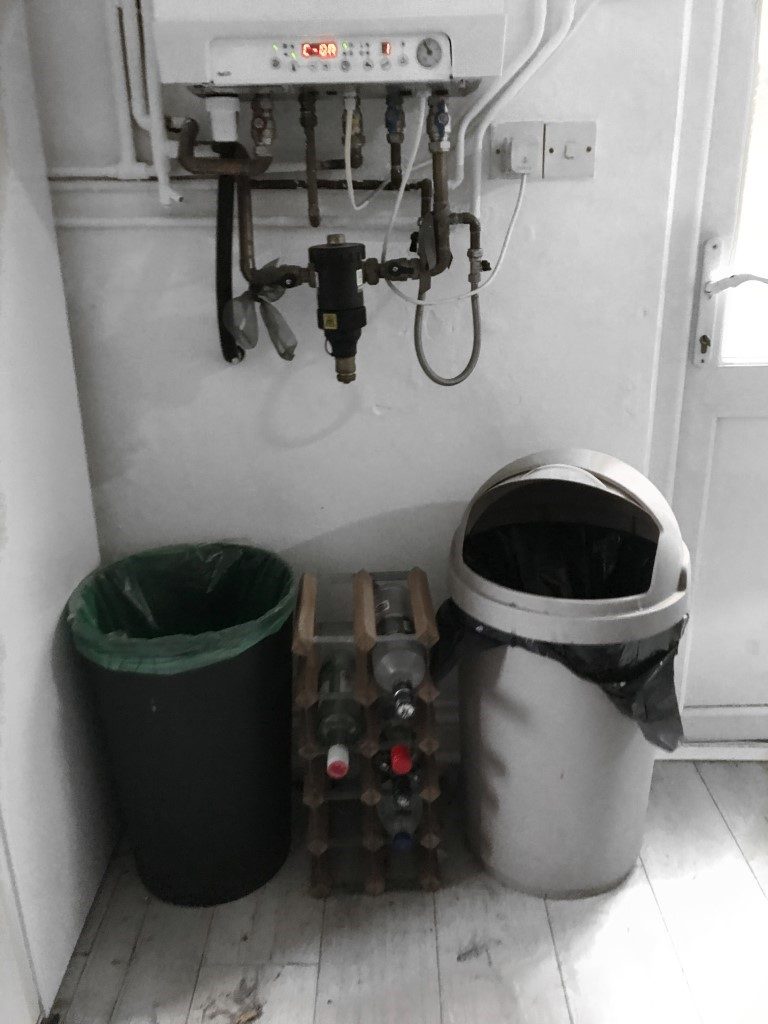
2. Reusable Fruit & Veg and Shopping Bags
Lots of supermarkets, Lidl for example, are now selling loose fruit and veg. This causes less wastage as you can choose how much of something you buy. It does require a plastic bag though… or so you thought! Or so you thought! Lidl now sells reusable fruit and veg bags, and even if you don’t shop in Lidl you can buy them online from places like eBay or Eco shops. This way you are not only contributing less wastage, but also simultaneously contributing less plastic to the environment. Saving the turtles and using less oil. Win win am I right? Though this does rely on you remembering to bring your bags every time you shop, otherwise it’s counterproductive and expensive…
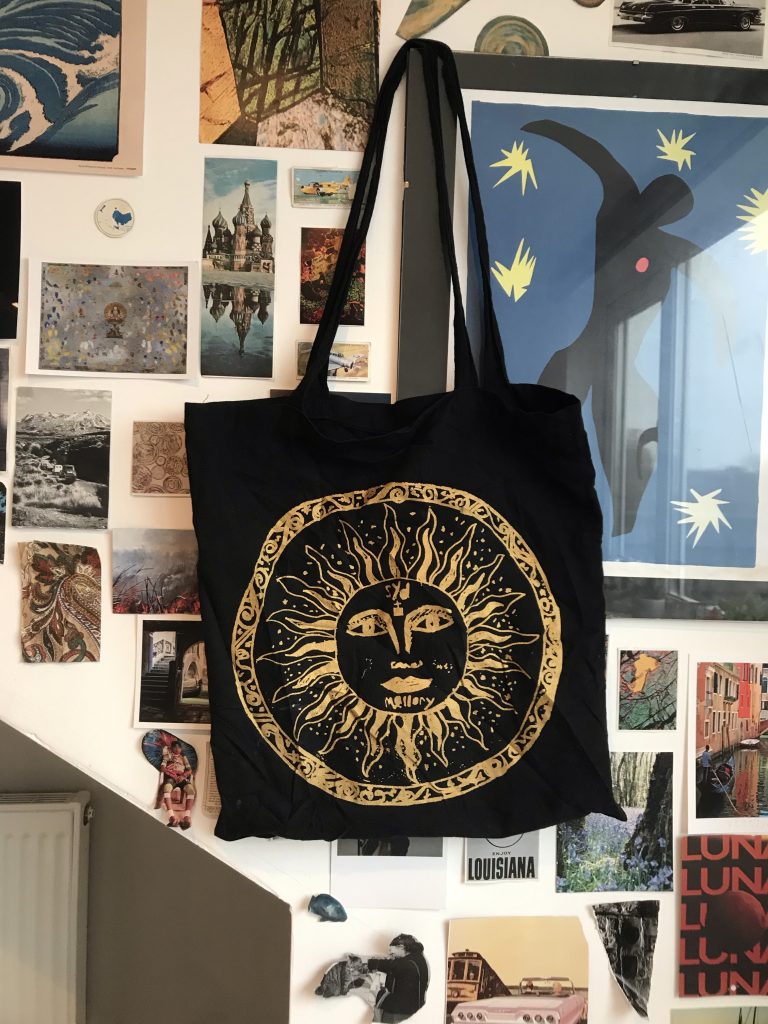
3. Turn off the lights, heating and taps
When you get to second year it’s too expensive to keep the heating on for long anyway, but in first year you are probably tempted to whack the heating on as it’s not you paying. Don’t. Turn the heating off and put on that fluffy jumper you got for Christmas, it uses less fuel and is better for the environment. The same goes for the lights, make sure you turn them off when you leave your room. Even if you are just going to the kitchen, let’s be honest you are probably going to get distracted by your housemate and those lights are going to be on for hours – yes that means your fairy lights too. Similarly, turn off the tap when brushing your teeth, face or when shaving. If you have long showers, cutting down by just 4 minutes will save 3,650 gallons of water every year (estimated: average shower head uses 2.5 gallons per minute). 4 minutes off, that’s just one Beyoncé shower performance scrapped.
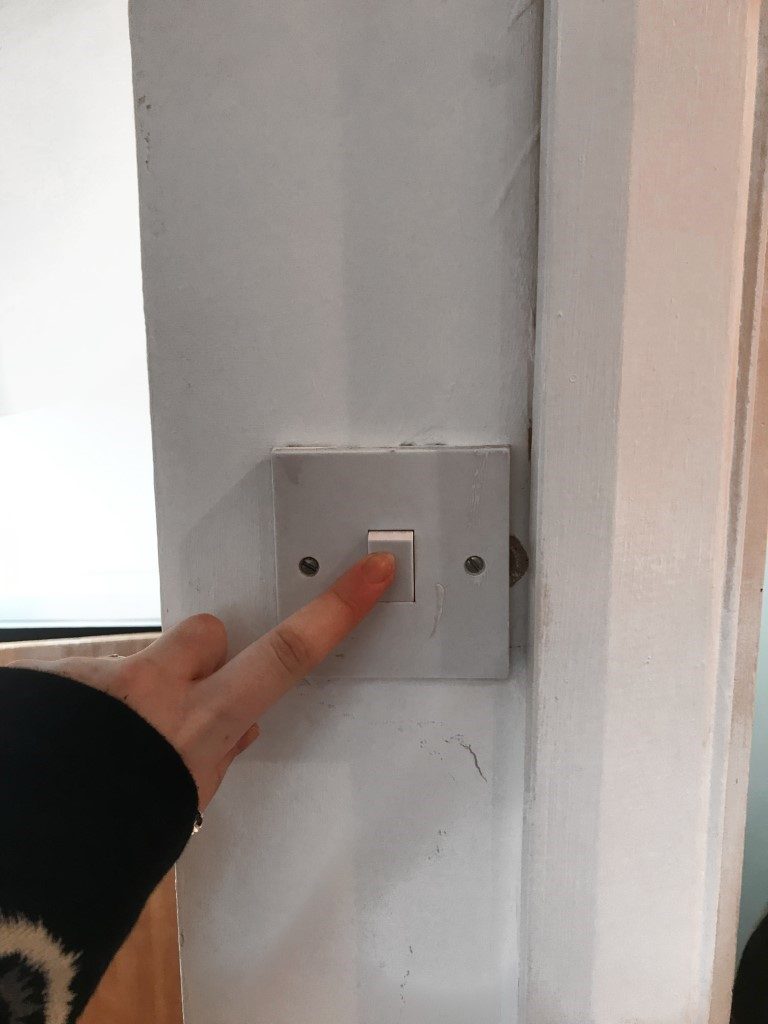
4. Walk, Cycle or use Public Transport
Most students don’t have their cars at Uni, but lots do. The temptation is to drive, if you’re always late this is an even bigger factor. Not only is this bad for the environment but it’s also very expensive. Do you really want to be blowing your student loan on trips to the supermarket and town when you could walk? Cardiff also is home to the ‘Nextbike’ which is a service of bikes all around the city which you can ‘rent’, simply returning them to the nearest Nextbike station. The first half hour is free, and to be honest, you can cycle pretty much anywhere in Cardiff in half an hour or less so it’s nearly always free (just make sure you return it to a Nextbike station, or you get charged a removal fee). Walking is the other option which is not only free but also great exercise.
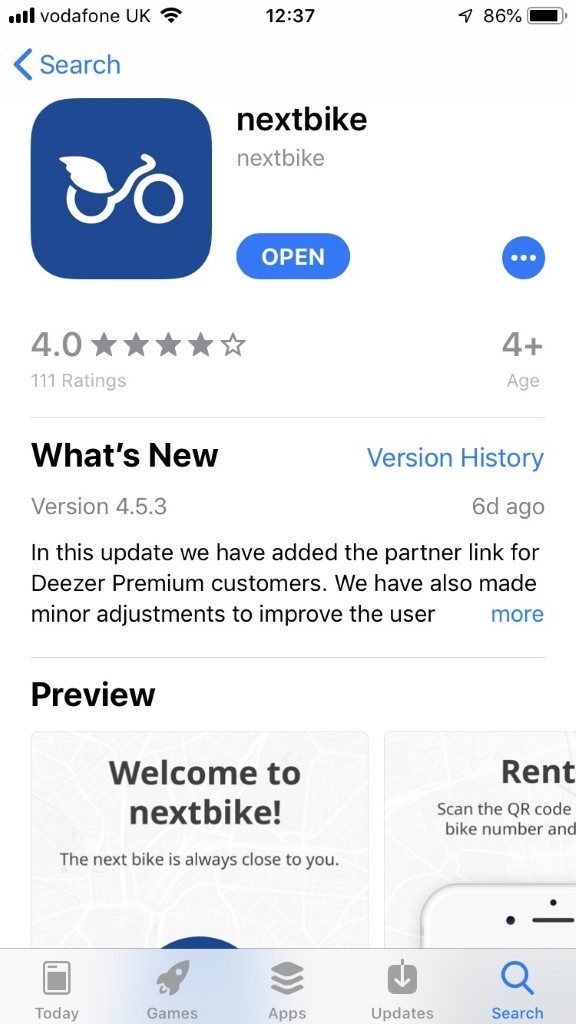
5. Take Your Laptop to Lectures
Everyone loves a new notebook. There’s something very satisfying about the crisp new paper, however they are also made out of trees. Most of us waste a lot of paper, starting a new page every time to be neat. The solution to this paper wastage is taking your laptop to lectures. Not only is this free, less notebook buying, it is also way more effective. We can usually type much quicker than we can hand write and get much better notes this way too. Save paper – type it out on a word document.
6. Use a reusable bottle
Rather than buying a new bottle of water every day, buy one and use it for a while or buy a more reusable one from LITERALLY anywhere (Primark, smiths, the Uni shop – literally everywhere sell these). Water is also free, so you can go into any restaurant or café and ask for a tap water re-fill and by law they must refill it for you. Not to mention the water fountains dotted all around the university buildings. Keep-cups are also a good idea, less cardboard cups mean less pollution, and cafes usually will charge you less for your hot drink if you provide your own travel cup.
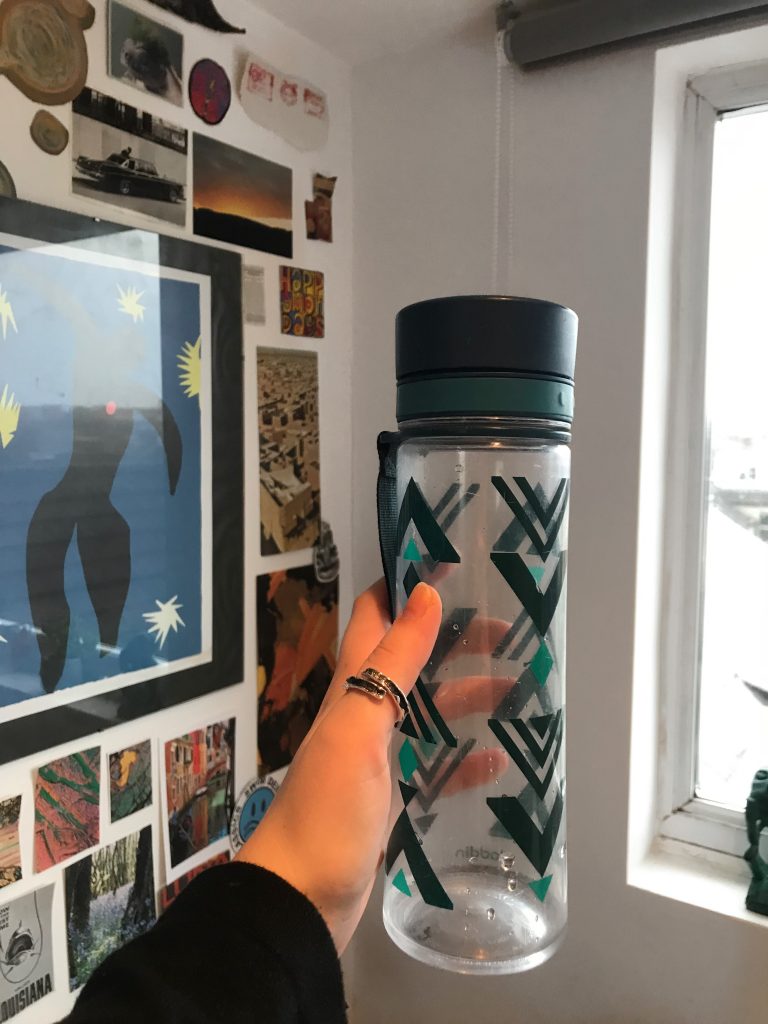
7. Buy Less
Shopping has a massive effect on the environment, think of all of the oil, water and resources used in production. As a western population we do generally buy way more than we actually need, think about those items of clothing you just HAD to have, and yet have never actually worn. Or those cheap joke glasses that were just so hilarious, yet you never even took them out of the packet. Yep all of those things aren’t necessary. Buying less contributes less pollution to the environment, and less of a strain on your bank account. If you love your clothes, maybe try borrowing your friends, or taking part in a clothes swap.
8. Charity Shops
If you really have to shop, try charity shops, eBay or Depop. These are not only cheaper alternatives but are also way more environmentally friendly. You can also get your high street brands on here second hand, so you are not contributing to the carbon footprint. Also, who doesn’t love a vintage deal. Some good Depop Vintage shops include: @_row_ , @susamusa , @Asteroidvintage , @funkyfinds @secondlifevintage
9. Eat Sustainable Food
There are many cheap and easy ways to eat sustainably. Decreasing your meat consumption and eating more vegetables is cheap and much more sustainable. You don’t have to entirely cut meat out but if everyone decreased their consumption the planet would be much better off. The livestock sector generates 65% of human related nitrous oxide which has a 296x higher global warming potential than carbon dioxide.
10. Download Eco Apps
There are so many different apps out there, engineered solely to help the environment. For example, Ecosia is a web browser which literally plants trees and helps out local communities while you search for the latest Kardashian drama, shop online, research for lectures or check up on the rugby. Other apps like Oroeco are also worth checking out, this helps you track your carbon footprint and gives you achievements and tips for reducing yours. Lots of restaurants are also signed up to ‘Too Good To Go’, this is an app which fights food waste. You simply collect your meal from the store at a specified time (at a very low cost considering the food you get) and have hand in hand saved money and reduced the impact on the environment.
So, whether Veganism is just too hard for you or you hadn’t realised how easy it is to help save the planet, follow these 10 steps! You can sleep easy knowing that you have made an effort to live in an environmentally friendly way. Don’t stop there, if this is something you feel strongly about join the Extinction Rebellion society and take part in their projects and talks.
10 Easy Ways for Students to Help the Environment
13 Chwefror 2020
Being environmentally aware has recently become a trend, and one we should be thankful for considering the planet’s current state. From veganism to sustainable makeup, our generation are making conscious decisions on behalf of a healthier planet. However, there are common misconceptions that it costs more money to be environmentally friendly, stopping lots of people from doing their bit. Yet this conception is wrong, there are many cheap ways to help the environment, here is an easy guide:
1. Recycle
An obvious but an essential one. It can be very tempting to shove your rubbish in the black bin liner as opposed to taking off the recyclable packaging, or even just figuring out if it is indeed recyclable. In first year, the accommodation holds recycling competitions, and this introduces a relatively fun aspect (I mean how fun can recycling be made?) and some friendly rivalry. In second and third year the council fine you for having food waste in any bin other than the food waste bin, they also only take your black bin liners if they fit in the wheelie bin with its lid closed. Otherwise they refuse to collect it and you’re stuck with loads of rubbish which back logs (trust me this results in rats in the long run. Something you REALLY want to avoid). The council collect as many recycling bags as you put out which is an incentive to recycle, who wants loads of rubbish cluttering up their garden or house? The easiest way to do this is have 2 bins and the food bin and just separate it as you go throughout the week.

2. Reusable Fruit & Veg and Shopping Bags
Lots of supermarkets, Lidl for example, are now selling loose fruit and veg. This causes less wastage as you can choose how much of something you buy. It does require a plastic bag though… or so you thought! Or so you thought! Lidl now sells reusable fruit and veg bags, and even if you don’t shop in Lidl you can buy them online from places like eBay or Eco shops. This way you are not only contributing less wastage, but also simultaneously contributing less plastic to the environment. Saving the turtles and using less oil. Win win am I right? Though this does rely on you remembering to bring your bags every time you shop, otherwise it’s counterproductive and expensive…

3. Turn off the lights, heating and taps
When you get to second year it’s too expensive to keep the heating on for long anyway, but in first year you are probably tempted to whack the heating on as it’s not you paying. Don’t. Turn the heating off and put on that fluffy jumper you got for Christmas, it uses less fuel and is better for the environment. The same goes for the lights, make sure you turn them off when you leave your room. Even if you are just going to the kitchen, let’s be honest you are probably going to get distracted by your housemate and those lights are going to be on for hours – yes that means your fairy lights too. Similarly, turn off the tap when brushing your teeth, face or when shaving. If you have long showers, cutting down by just 4 minutes will save 3,650 gallons of water every year (estimated: average shower head uses 2.5 gallons per minute). 4 minutes off, that’s just one Beyoncé shower performance scrapped.

4. Walk, Cycle or use Public Transport
Most students don’t have their cars at Uni, but lots do. The temptation is to drive, if you’re always late this is an even bigger factor. Not only is this bad for the environment but it’s also very expensive. Do you really want to be blowing your student loan on trips to the supermarket and town when you could walk? Cardiff also is home to the ‘Nextbike’ which is a service of bikes all around the city which you can ‘rent’, simply returning them to the nearest Nextbike station. The first half hour is free, and to be honest, you can cycle pretty much anywhere in Cardiff in half an hour or less so it’s nearly always free (just make sure you return it to a Nextbike station, or you get charged a removal fee). Walking is the other option which is not only free but also great exercise.

5. Take Your Laptop to Lectures
Everyone loves a new notebook. There’s something very satisfying about the crisp new paper, however they are also made out of trees. Most of us waste a lot of paper, starting a new page every time to be neat. The solution to this paper wastage is taking your laptop to lectures. Not only is this free, less notebook buying, it is also way more effective. We can usually type much quicker than we can hand write and get much better notes this way too. Save paper – type it out on a word document.
6. Use a reusable bottle
Rather than buying a new bottle of water every day, buy one and use it for a while or buy a more reusable one from LITERALLY anywhere (Primark, smiths, the Uni shop – literally everywhere sell these). Water is also free, so you can go into any restaurant or café and ask for a tap water re-fill and by law they must refill it for you. Not to mention the water fountains dotted all around the university buildings. Keep-cups are also a good idea, less cardboard cups mean less pollution, and cafes usually will charge you less for your hot drink if you provide your own travel cup.

7. Buy Less
Shopping has a massive effect on the environment, think of all of the oil, water and resources used in production. As a western population we do generally buy way more than we actually need, think about those items of clothing you just HAD to have, and yet have never actually worn. Or those cheap joke glasses that were just so hilarious, yet you never even took them out of the packet. Yep all of those things aren’t necessary. Buying less contributes less pollution to the environment, and less of a strain on your bank account. If you love your clothes, maybe try borrowing your friends, or taking part in a clothes swap.
8. Charity Shops
If you really have to shop, try charity shops, eBay or Depop. These are not only cheaper alternatives but are also way more environmentally friendly. You can also get your high street brands on here second hand, so you are not contributing to the carbon footprint. Also, who doesn’t love a vintage deal. Some good Depop Vintage shops include: @_row_ , @susamusa , @Asteroidvintage , @funkyfinds @secondlifevintage
9. Eat Sustainable Food
There are many cheap and easy ways to eat sustainably. Decreasing your meat consumption and eating more vegetables is cheap and much more sustainable. You don’t have to entirely cut meat out but if everyone decreased their consumption the planet would be much better off. The livestock sector generates 65% of human related nitrous oxide which has a 296x higher global warming potential than carbon dioxide.
10. Download Eco Apps
There are so many different apps out there, engineered solely to help the environment. For example, Ecosia is a web browser which literally plants trees and helps out local communities while you search for the latest Kardashian drama, shop online, research for lectures or check up on the rugby. Other apps like Oroeco are also worth checking out, this helps you track your carbon footprint and gives you achievements and tips for reducing yours. Lots of restaurants are also signed up to ‘Too Good To Go’, this is an app which fights food waste. You simply collect your meal from the store at a specified time (at a very low cost considering the food you get) and have hand in hand saved money and reduced the impact on the environment.
So, whether Veganism is just too hard for you or you hadn’t realised how easy it is to help save the planet, follow these 10 steps! You can sleep easy knowing that you have made an effort to live in an environmentally friendly way. Don’t stop there, if this is something you feel strongly about join the Extinction Rebellion society and take part in their projects and talks.
- Advice for Students
- After University
- Ail flwyddyn
- Application Process
- Application Process
- Applying to University
- Arian
- Aros gartref
- Aros mewn
- Astudio
- Byw oddi cartref
- Cardiff University Experiences
- Chwaraeon
- Clearing
- Clybiau a chymdeithasau
- Cooking
- Cyd-letywyr
- Cymraeg
- Darlithoedd
- Dim ond yng Nghaerdydd
- Exams
- Global Opportunities
- Guest posts
- Heb ei gategoreiddio
- Medic Tips
- Mynd allan
- Neuaddau Preswyl
- Open Day
- Opportunities
- Postgraduate Study
- Rhentu tŷ
- Student Heroes
- Student Life
- Studying Online
- Swyddi a phrofiad gwaith
- Teithio
- Things to do in Cardiff
- Top Tips
- Trydedd flwyddyn
- UCAS Application
- Why University?
- Ymgartrefu
